The Ambassador of the Republic of Indonesia in Nairobi, M. Hery Saripudin while at the home of the Indonesian ‘Soko la’ product, which contains thousands of samples of Indonesian products to be exhibited to potential importers. (Photo: Indonesian Embassy in Nairobi)
MINA News Agency’s team of reporters held an exclusive interview with the Ambassador Extraordinary anda Plenipotentiary of the Republic of Indonesia (LBBP RI) to the Republic of Kenya and the Democratic Republic of the Congo, the Federal Republic of Somalia and the Republic of Uganda, Dr. Mohamad Hery Saripudin, M.A. virtually, Tuesday (26/4/2022).
In addition to the ambassadors in the four East African countries, Hery is also appointed as the Permanent Representative (Watap) of the Republic of Indonesia at the United Nations Environmental Program (UNEP) and the United Nations Human Settlements Program (UN-Habitat) based in Nairobi, Kenya.
Kenya’s diplomatic relations with Indonesia have been established since 1979. To this day, these relations continue to be strengthened in various sectors, both through economic, educational, social, cultural diplomacy and people-to-people contact as reflected in the opening of the Kenyan Embassy in Jakarta recently.
Also Read: Be Careful of the Trap of Deploying Peacekeeping Forces to Gaza
In 2021, the trade value of Indonesia and Kenya for the first time in history exceeded the US$ 500 million mark with a surplus on the Indonesian side of more than 95 percent. This figure is an increase of more than 35 percent from the figure in 2020, whose upward trend has been seen since 2016.
Hery, who carried out his duties at the Indonesian Embassy in Nairobi for one year and four months, also encouraged the strengthening of educational diplomacy, both formal and informal, because according to him, educational cooperation is one of the entry points for strengthening public relations between the two countries, which can strengthen economic relations.
MINA News Agency’s team is consisted of Senior Editor Widi Kusnadi, Head of Reporting Rana Setiawan, Head Editor of Arabic Rifa Berliana Arifin, and Head Editor of English Sajadi.
Here’s an excerpt from the interview:
Also Read: The Forty-Four-Days of Glory: Azerbaijan’s Struggle for Justice and Peace
MINA: Could you briefly explain the history and development of relations between Indonesia and Kenya and other the accreditation countries?
Hery: Indonesia and Kenya started a conversation in 1979. So now it’s been 43 years. Indonesia only opened the Indonesian Embassy in Nairobi in 1982. So it’s been 40 years. I myself am the 11th Ambassador of the Republic of Indonesia at the Indonesian Embassy in Nairobi. Meanwhile, Kenya just opened its office in Jakarta on March 17, 2022 yesterday.
I first carried out my duties as ambassador in Nairobi in November 2020, then handed over the credential from President Joko “Jokowi” Widodo to Kenyan President Uhuru Kenyatta on December 2, 2020. I mean it has been 1 year and 4 months effective as Ambassador of the Republic of Indonesia to Kenya, I have also submit credentials to the three presidents of other accrediting countries.
Africa, In closing, conveying all credentials from President Jokowi and conveying friendly greetings from the President of Indonesia to the four presidents, the serious desire or commitment of the Indonesian government to improve bilateral relations between Indonesia and the four eastern countries.
Also Read: Palestine Solidarity Month: A Collective Movement for Al-Aqsa and Palestine’s Freedom
Of course, the main and first mission is the mission of economic diplomacy, for the economy indeed I was mandated by President Jokowi through the Minister of Foreign Affairs of the Republic of Indonesia Retno Marsudi so that I as ambassador of the four countries increase economic cooperation, both trade and investment.
Alhamdulillah, from the target mandated by the Indonesian government, I am asked annually to be able to increase the value of bilateral economic transactions by 3 percent and Indonesia and Kenya even though the last two years have been affected by the Covid-19 pandemic, where there are restrictions on physical mobility and the flow of export-imported goods. however, the increase in Indonesia’s trade with Kenya has increased significantly.
Before 2019 to 2020, at the beginning of the Covid-19 pandemic, the economic value of Indonesia and Kenya increased by 40 percent from the original volume value ranging from 240 to 430. Then from 2020 to 2021 it increased by more than 30 percent. Now, the value of Indonesia’s bilateral trade transactions with Kenya has exceeded the value of 550 million US dollars.
My interpretation from this statistical data is that despite the actual Covid-19 pandemic, with limited mobility of people, entrepreneurs cannot move here and there, then also the scarcity of finding containers, forwarders, then increasing insurance costs, with all these factors, should hinder trade cooperation, but in fact the opposite happened.
Also Read: Hassan al-Turabi: A Controversial Thinker from Sudan
I am very optimistic that during the Covid-19 pandemic alone, the increase will be more than 30-40 percent. Of course, this is a trigger for me and the team at the Indonesian Embassy in Nairobi. I have high hopes that the value of trade will increase even more sharply after the Covid-19 pandemic.
Both countries still have enormous potential, which we have to do even more to explore.
Then on political diplomacy, when I accompanied Kenyan Foreign Minister Raychelle Omamo to visit Indonesia on March 16-19 2022. One of the main missions was to open the Kenyan Embassy in Jakarta. So now Indonesia-Kenya bilateral affairs from the Kenyan side are no longer concurrently or handled by their embassy in Kuala Lumpur, but already in Jakarta. This is a big leap for me as an ambassador.
I interpret Kenya’s political maneuvers or steps to increasingly view Indonesia as so important that it opens and places its embassy in Indonesia. Why is it important, because Indonesia is a large and potential market for their export products, where there are 270 million people in Indonesia.
Also Read: Who Exactly is the RSF Group Shaking Sudan?
Indonesia is also the “leader” of ASEAN and its secretariat office is in Jakarta, if we combine the population from 10 countries, the total is more than 600 million and that is also a fairly large market.
This is the right moment when Indonesia becomes the G-20 presidency. The G-20 is an organization of economic power, while Kenya is a non-permanent member of the UN Security Council which is the most powerful political institution in the world. So these two forces, the strength of political institutions, security, the UN Security Council and the economic power of the G-20, of which the two countries are members, if they work together, they become a force that can bring progress to the South, or developing countries.
Equally important from the political aspect, apart from opening an embassy office, the Minister of Foreign Affairs of Kenya also held intensive meetings in consultation with Indonesian Foreign Minister Retno Marsudi. One of the agreements in the talks was that the two countries recognized and respected each other’s sovereignty. So Indonesia recognizes Kenya’s sovereignty, Kenya recognizes the territorial sovereignty of the Unitary State of the Republic of Indonesia.
The Foreign Minister’s visit resulted in seven collaborations, namely two MoUs signed by the two Foreign Ministers, then cooperation in the economic field, between Kadin Indonesia and Kadin Kenya or KNCI (Kenya National Chamber Industry), then in the field of education between Unpad and the University of Nairobi and between UIN Syarif Hidayatullah with Ummah University, as well as collaboration between the Antara News Agency and the Kenya News Agency, namely the Kenya Broadcasting Corporation (KBC). These seven areas are prioritized because each has a very strategic value.
Also Read: The Two-State Solution (Palestine–Israel) in Historical Perspective
During the visit, the Kenyan Foreign Minister met with Indonesian Vice President KH Ma’ruf Amin and held a courtesy call which resulted in an agreement between the two parties to increase bilateral cooperation.
In addition, the Kenyan Foreign Minister also visited Bandung to visit the Museum of the Asian-African Conference as well as give a public lecture organized by Unpad attended by the Unpad Chancellor and his academic community. The Foreign Minister also visited PT Pindad where Kenya expressed interest in cooperation in the defense sector and we are currently offering our strategic industrial products to the Kenyan government.
From a socio-cultural perspective, I explained earlier that there was already a collaboration between the two universities and why I said it had strategic value. If we want to strengthen bilateral cooperative relations between the two countries, the relationship should not stop only at the level of state officials or government officials who are now in power, let alone executive officials.
They will retire in 5,6,7 years, so what is more strategic is targeting their respective youths, so how to build mutual understanding, mutual understanding, between the young generation of Kenya and Indonesia. If they know each other, they understand each other, in the next 20 or 25 years they will be ministerial candidates, they are presidential candidates, and the candidates for party chairman, parliamentary chairman, and when they become decision makers they will already know each other.
Also Read: Enchanted by K-Dramas, Dragged into Slander: Time for Muslims to Rise!
That’s educational diplomacy. Therefore, alhamdulillah last year in my first year here, the Indonesian Embassy in Nairobi gave 30 scholarships to youth from four countries, meaning that we must create a kind of big Indonesian family or Indonesian lobby in the four countries.
Lastly, the diplomacy of people to people contact, currently there are 26 Indonesian citizens who work as nuns from the eastern part of the Indonesian Catholic Congregation, who dedicate themselves to all corners of the four countries. They carry out humanitarian and public health activities. They’ve lived here for over 20 years. This is an asset of our diplomacy, people to people contact diplomacy between Indonesia and the four countries.
In addition, since last year, there have been regular Indonesian citizens from the Jamaah Tabligh Islam group, they stay here for three months, fostering emotional closeness between Indonesian citizens and the citizens of the four countries. We from the government are only facilitating it.
Finally, regarding diplomacy to protect Indonesian diaspora, there are about 30 crew members in Mombasa, who always have their own problems and we have managed to solve them. The problem is usually about late payments or unpaid salaries or even physical violence, and when problems arise this is where the presence of the state in Nairobi has an important meaning, we usually deal with those problems.
Also Read: Creating Opportunity and Avoiding Misery; Lesson Learn on Waste Recycling Issue
In addition to the crew, there are also Indonesian Migrant Workers in Congo, many of whom work in the mining and timber sectors. Alhamdulillah, we can also help solve the problems faced by them.
MINA: What are the opportunities for improving Indonesia’s relations with Kenya and those accredited countries?
Hery: Regarding economic opportunities, we mapped Indonesian export commodities to Kenya and three other accredited countries. First, the export of crude palm oil (CPO) controls 80 percent of Indonesia’s market share here, the second is paper products and their derivatives, the third is food product.
I am happy to convey here, I am proud, while I was here there was one product that was exported for the first time, namely coconut milk, whether it was Coconut powder or Coconut milk, and this is a product of the nation’s children.
Also Read: Between the Treaty of Hudaybiyyah and Ceasefire in Gaza
Alhamdulillah, my team and I went directly to help from the negotiation process to the delivery of the first export.
However, what I have said are some of the products that are already here that have found their own market share. I see that there are still many opportunities for other Indonesian products that can be sold here, including SME products.
Last year, in September, I opened a project called Soko la Indonesia, taken from the Swahili language meaning Indonesian Market, this is a kind of display house for Indonesian national Small and Medium Enterprises (SME) products. We collaborated with entrepreneurs from Indonesia, coordinated by one party in the country, they sent a container of Indonesian SME export products to ask for their assistance to be exhibited at the Indonesian Embassy in Nairobi.
I received more than 2,500 samples of Indonesian national SME products ranging from food ingredients, handicrafts, skin care, pharmaceutical products, and others. We exhibit here, this is a permanent exhibition, not incidental. We invite all potential importers from Kenya who are interested in these Indonesian products, we invite them to see the products for themselves, take samples, then they can try or taste them, including apparel, textile and footwear products, it’s all there.
Also Read: Peace Cannot Be Achieved Without a Palestinian State
On this occasion, through MINA News, we also appeal to or invite SMEs in Indonesia, please, if you want their products ready for export, you want the Indonesian Embassy to help market them in Kenya, we are open to accepting. Of course, we cannot fund the financing of the shipment if Indonesian exporters want to send their goods to the Indonesian Embassy in Nairobi, we are very open.
By exhibiting these goods, from September 2021 until now, many visitors from potential importers have come to this exhibition and, as I said earlier, some of them have spawned the first export.
So we are only facilitating, then if there is interest from the Kenyan side, we will connect directly, then negotiate between themselves, we only monitor and get reports from the Indonesian businessman who asked for our help.
From a socio-cultural perspective, I said that last year we gave 30 scholarships, although this is quite ambitious, I target 100 scholarships to be given to youth from accredited countries.
Therefore, I appeal to our Minister of Education, Culture, Research, and Technology (Mendikbud Ristek) Mr. Nadiem Makarim and the Chancellors if they can allocate these scholarship funds to create an Indonesian lobby in Africa in general and in East Africa in particular, through the provision of these scholarships. This is a big investment and is strategic in nature.
In educational diplomacy, for the University it is indeed easier to exchange students if there is a framework of cooperation. I’m currently focusing on Unpad and the University of Nairobi, then between UIN Syarif Hidayatullah Ciputat and Ummah University, which was only yesterday in March during the visit of the Kenyan Foreign Minister to Indonesia.
The scope of this collaboration adjusts the Tri Dharma of higher education in the fields of teaching, research and service. If investigated, there are student exchanges between the two universities, lecturer exchanges, joint research, and so on.
But we don’t limit ourselves to these two universities which happen to be from Kenya. In Uganda, for example, there are very large universities, one Makarerere University and there is also the Islamic University Uganda (IoU) which was formed by the Organization of Islamic Cooperation (OIC). They are also very enthusiastic.
In addition, the Indonesian Embassy in Nairobi also opened up opportunities for students from the Indonesian University in the Merdeka study program and the Merdeka campus, to do internships at the Indonesian Embassy.
Currently, there are four 6th semester students from the Department of International Relations Unpad who are doing internships with us. So they are apprentices after gaining theoretical understanding in college, they also want to see the real practice of how a diplomat works, how Indonesia’s diplomatic machine is carried out both in bilateral and multilateral relations.
Because in Nairobi, apart from being a bilateral ambassador, I am also Indonesia’s permanent representative for UNEP and UN-Habitat. We also invite you to attend and participate in various international session.
This is a form of contribution from the Indonesian Embassy in Nairobi to provide an understanding of how final semester students usually see firsthand the application of theories of knowledge in college, thus enabling them to instill their love of becoming a diplomat or at least working in international organizations, thereby opening up their horizons.
This is a contribution from the Indonesian Embassy in Nairobi in the empowerment program initiated by our Minister of Education, namely the Independent Learning Campus Program.
Regarding the opportunity to spread Islamic teachings, last year Muhammadiyah contributed to building a mosque in a city bordering Uganda, in the city of Mbale and God willing, we will inaugurate it next month.
The construction of this mosque was fully contributed by Indonesian Muslims through Muhammadiyah. The mosque has been functioning since last December, because of the Covid-19 pandemic, representatives from Muhammadiyah Jakarta have not had time to come here. God willing, at the end of next month there will be a visit from the leadership of Muhammadiyah and will inaugurate the mosque.
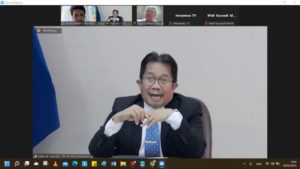
Screenshot of the exclusive interview of MINA News Agency Team with the Indonesian Ambassador to the Republic of Kenya concurrently the Democratic Republic of the Congo, the Federal Republic of Somalia and the Republic of Uganda, Dr. Mohamad Hery Saripudin, M.A. (Photo: Doc. MINA)
MINA: How is the situation and traditions of Ramadan in African countries, especially in your accreditation country?
Hery: We must understand the Ramadan situation in Kenya first that Muslims in Kenya, including the other three accredited countries, are a minority group, except in Somalia where 95 percent of the population is Muslim, so the atmosphere of Islamic mysticism may be the same as Indonesia.
In Kenya, Uganda and Congo, they are still minorities with only 10 percent of the Muslim population, but that does not reduce the solemnity of fasting there, so indeed the atmosphere in Kenya, for example in Nairobi, does not really feel the atmosphere of Ramadan, just like everyday life.
Only when we go to the East coast, Mombasa, where there is almost the majority, far more Muslims and mosques are everywhere, the atmosphere of Ramadan is felt there.
Meanwhile, the duration of Ramadan fasting is almost the same as in Indonesia, around 13 hours. Imsak time is around 5.13, later in the afternoon than the time for Imsak in Indonesia, then the time for iftar is around 18:35 local time.
Alhamdulillah, the climatic conditions in Nairobi are quite cool because of the highlands, if in the coastal area of Mombasa it is clearly hot. So the atmosphere of Ramadan in Nairobi because of this coolness actually becomes a pleasure because you don’t feel thirsty and so on.
Then the tradition of Ramadan in mosques in East African countries is the same as in Indonesia, the mosques here hold iftar together by giving takjil to their congregations every day. The Indonesian Embassy in Nairobi also participated by providing takjil food for fellow Muslim communities in one mosque, we also distributed iftar in one mosque in Nairobi for 100 worshipers.
The atmosphere of Ramadan here has no restrictions due to the Covid-19 pandemic, four restrictions have been lifted for the past few months, there is no longer a curfew, gatherings of how many hundreds are no longer limited, previously limited to only 20 people at a time, meeting, is now free.
Because the atmosphere seemed to be back to normal again, it made the atmosphere of Ramadan 1443H in diplomatic circles even more crowded. Every week there are invitations to iftar from the ambassadors of OIC countries, such as from the ambassadors of Saudi, Kuwait, Oman, Iran, and others.
We at the Indonesian Embassy in Nairobi are also the same as last year because it started with concerns that there would still be the spread of the covid-19 virus, this Ramadan 1443H, we are also holding a digital Ramadan tausiyah, inviting famous Islamic scholars and figures from the country to deliver tausyiah virtually, in fact, many diaspora followed in four accredited countries.
We also welcome the arrival of Eid Al-Fitr 1443H, which of course, as last year, the Indonesian Embassy in Nairobi held Eid prayers at the Indonesian Embassy by implementing strict health protocols.
MINA: Is there a request for the imam of the mosque or preacher from the Muslim community there?
Hery: There is no official request. Every time I visit outside the province, I take time apart from meeting with the governor’s officials, I also meet with the Muslim community there and they want an imam or hafidz from Indonesia to teach in their mosque.
There have been periodical since last year there are pilgrims from Jamaah Tablighi who stay in groups for three months in one place, then move again to another place, and we always invite them to share knowledge and even now there are still members of this Tablighi Jamaat.
This is a form of preaching and how to develop a sense of tolerance between religious communities. Those who initially did not really understand about Islam growing and developing in Indonesia, it was through them that their understanding developed.
God willing, next month there will be a mission from Muhammadiyah which inaugurates the use of the mosque which is assisted by funding by Muhammadiyah. Some Islamic organizations here will welcome them like waqf bodies and we are also thankfully familiar with some of the imams of the mosques in Nairobi and we always collaborate with them.
MINA: How do you see the Palestinian solidarity movement in Africa?
Hery: There has also been a voice of humanitarian solidarity for Palestine in African countries, especially in East Africa. Moreover, during this fasting month, the Israeli army stormed the Al-Aqsa Mosque and attacked its Palestinian worshipers.
Actually, Israel is not only attacking Muslims, but attacking the humanity of the world community, disturbing the humanity of the citizens of the world, and it has also appeared in several countries, including Kenya.
I don’t think there is any country in the world that doesn’t condemn Israel’s actions, except for some of its allies, so the majority of countries in the world strongly condemn it, especially since Indonesia has firmly stated its position.
Israel has attacked humanity as an occupier, torn apart the right to freedom of a nation, that’s what happened. Indeed, the international community, especially the Islamic countries, is still very much indebted to the Palestinian people.
In Africa itself there is a strong rejection of Israel. In February this year, about 54 African countries that are members of the African Union, by consensus, rejected Israel as a country that has the status of an observer state in the African Union.
This is based on the conditions that have occurred so far, how Israel’s foreign attitude always contradicts human rights, namely the right to self-determination of the Palestinian people. (T/RE1)
Mi’raj News Agency (MINA)






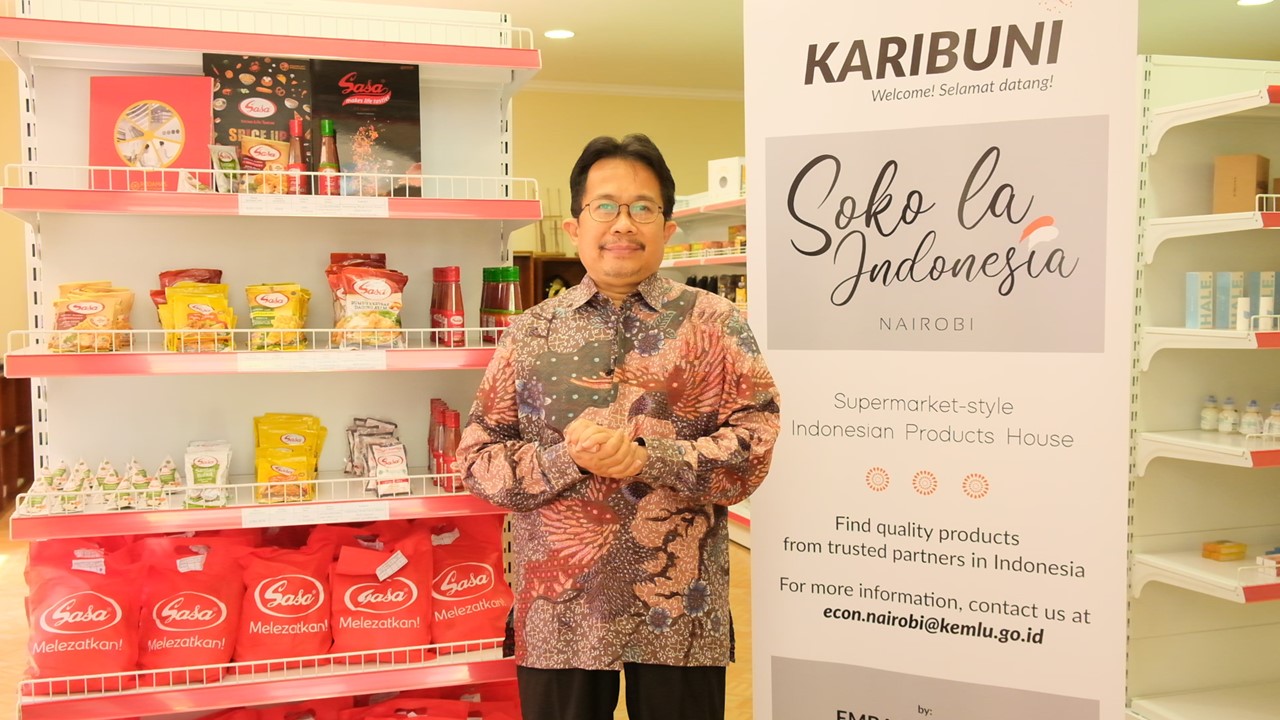

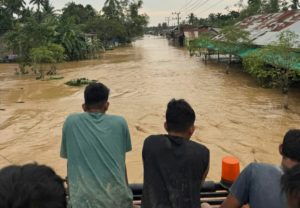



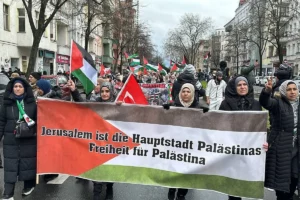

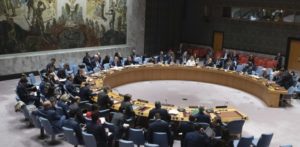

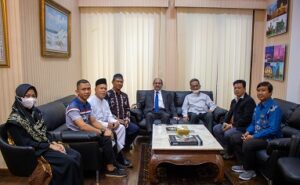
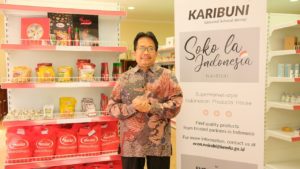

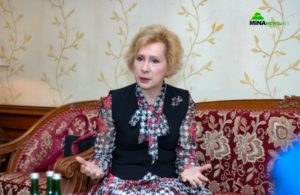
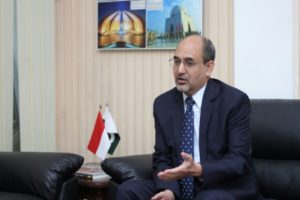







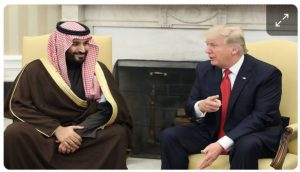


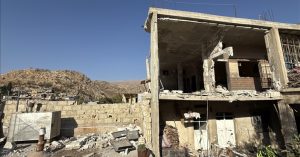



 Mina Indonesia
Mina Indonesia Mina Arabic
Mina Arabic